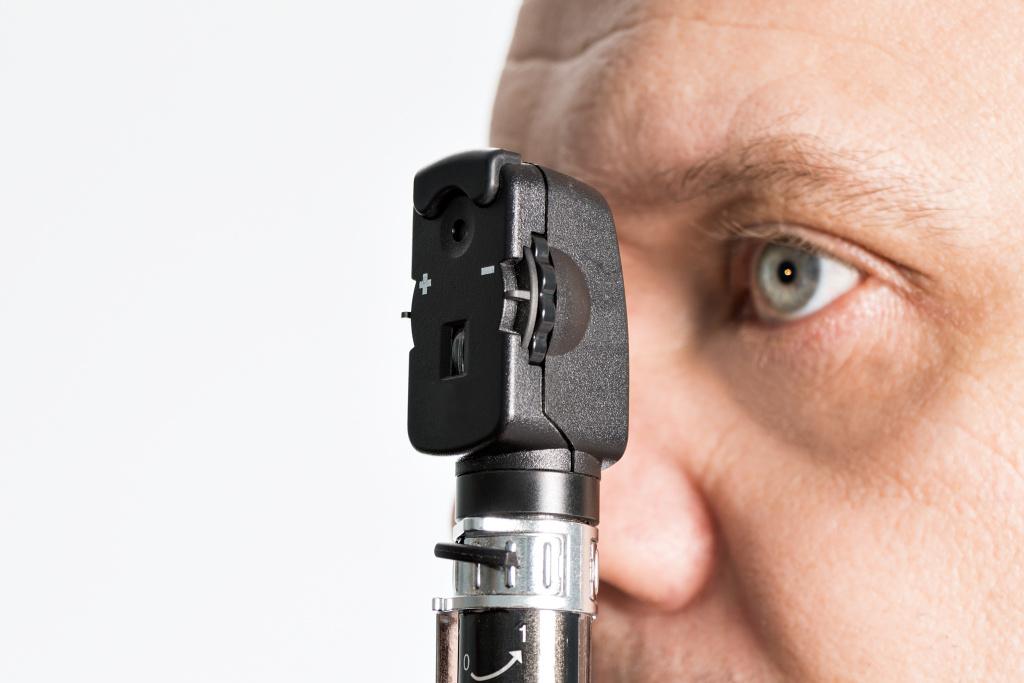Ophthalmoscope Market for Diabetic Retinopathy and Early Disease Detection

Introduction
The growing global burden of diabetes has intensified the demand for early and accurate detection of associated complications, particularly diabetic retinopathy (DR)—a leading cause of vision loss in adults. The ophthalmoscope market plays a pivotal role in addressing this challenge by offering non-invasive diagnostic tools essential for screening and monitoring eye health in diabetic patients. This article explores how the market is responding to the increasing prevalence of diabetic retinopathy, the technological innovations enabling early detection, and the role of ophthalmoscopes in integrated diabetes care.
Understanding Diabetic Retinopathy
Diabetic retinopathy occurs when high blood sugar levels damage the blood vessels in the retina, leading to leakage, swelling, and vision impairment. Left untreated, it can progress to severe stages causing retinal detachment or blindness. The World Health Organization (WHO) estimates that nearly one-third of diabetic individuals exhibit signs of retinopathy, and early detection is critical to managing the disease and preventing permanent damage.
Role of Ophthalmoscopes in Early Detection
Ophthalmoscopes are among the first-line tools used to detect signs of diabetic retinopathy during routine eye examinations. Through fundus visualization, eye care providers can assess:
-
Microaneurysms
-
Retinal hemorrhages
-
Cotton wool spots
-
Neovascularization
-
Macular edema
The ability to detect these changes in their early stages enables timely intervention and better prognosis, positioning ophthalmoscopes as essential tools in preventive diabetes care.
Market Demand Driven by Diabetes Prevalence
The rise in diabetes cases, especially in developing countries, has significantly expanded the ophthalmoscope market. According to the International Diabetes Federation, over 530 million people globally live with diabetes, and the number is expected to reach 640 million by 2030. This spike creates substantial demand for ophthalmic screening tools across all levels of the healthcare system.
Hospitals, clinics, and outreach programs now routinely include fundus examinations as part of diabetes management, fueling increased procurement of both direct and digital ophthalmoscopes.
Technological Innovations Targeting Diabetic Retinopathy
1. Digital and Smartphone-Based Ophthalmoscopes
Digitally enabled devices allow clinicians to capture high-resolution images of the retina, which can be stored, reviewed, and shared for diagnosis. Smartphone-compatible ophthalmoscopes are especially useful in remote and rural settings, offering mobility and affordability.
2. AI-Powered Screening
Artificial intelligence is revolutionizing DR screening. AI-integrated ophthalmoscopes analyze retinal images to automatically detect diabetic retinopathy signs, often with accuracy comparable to human experts. These systems are especially helpful in mass screening programs where ophthalmologist access is limited.
3. Cloud-Based Monitoring Systems
Modern ophthalmoscopes connect to cloud platforms that enable long-term patient monitoring. Diabetic patients can have their images compared over time to assess disease progression and treatment efficacy, supporting personalized and proactive care.
Use Cases Across Healthcare Settings
-
Primary Care Clinics: Use compact, digital ophthalmoscopes to conduct initial screenings during general diabetes checkups.
-
Eye Hospitals: Employ indirect and advanced ophthalmoscopes for in-depth examinations and treatment planning.
-
Community Health Programs: Utilize mobile screening units with portable ophthalmoscopes to reach underdiagnosed populations.
-
Telemedicine Platforms: Leverage smartphone-based ophthalmoscopes for remote image capture and specialist consultation.
Benefits of Early Detection Using Ophthalmoscopes
-
Prevent Vision Loss: Catching diabetic retinopathy early significantly lowers the risk of blindness.
-
Reduces Healthcare Burden: Early treatment is less costly and less invasive than managing late-stage complications.
-
Empowers Primary Care: Allows general practitioners and diabetes specialists to monitor eye health alongside glucose levels and other indicators.
-
Supports Public Health Goals: Enhances outcomes in national diabetes and vision care programs.
Challenges and Considerations
While the ophthalmoscope market is well-positioned to support diabetic retinopathy screening, some challenges remain:
-
Limited awareness among diabetic patients about the importance of regular eye exams.
-
Shortage of trained eye care professionals in rural and low-income regions.
-
Affordability concerns for advanced digital or AI-integrated devices.
-
Data privacy regulations for storing and sharing patient images.
Addressing these issues requires collaborative efforts across governments, healthcare providers, and medical device manufacturers.
Strategic Market Opportunities
To meet rising demand, companies in the ophthalmoscope space are:
-
Developing low-cost digital models for emerging markets.
-
Partnering with NGOs and governments for mass screening programs.
-
Integrating automated image grading software into devices.
-
Expanding training and support services for non-specialist users.
These strategies not only drive revenue but also promote equitable access to vision-saving diagnostics.
Conclusion
As diabetic retinopathy becomes a growing concern in global healthcare, the ophthalmoscope market is stepping up with solutions that enable early, accessible, and effective detection. The convergence of digital imaging, AI, and portable design is transforming how eye care is delivered to diabetic populations. By focusing on innovation and inclusivity, the market is playing a crucial role in preserving sight and improving quality of life for millions at risk.
- Art
- Causes
- Crafts
- Dance
- Drinks
- Film
- Fitness
- Food
- Jogos
- Gardening
- Health
- Início
- Literature
- Music
- Networking
- Outro
- Party
- Religion
- Shopping
- Sports
- Theater
- Wellness
- IT, Cloud, Software and Technology


